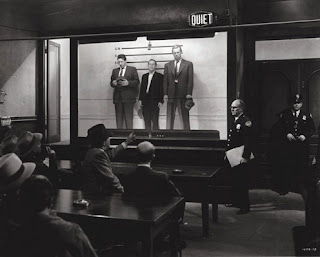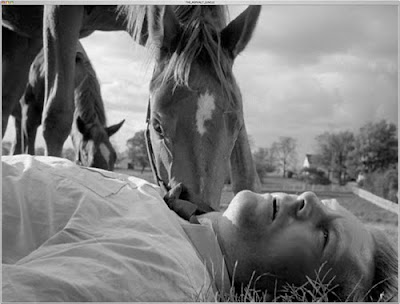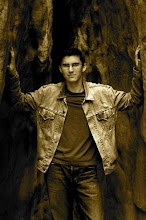
This post contains spoilers. If you haven’t seen Inception, this might ruin it for you. Don’t risk it.
This post also contains satirical comments about people who dislike Inception. If you’re one of the poor, misguided fools who somehow failed to appreciate the cinematic mastery of Christopher Nolan’s latest film, you have my pity. It’s a free country and you’re entitled to your opinions. My opinion is that Christopher Nolan is the greatest director of this generation, and Inception is one of the coolest movies ever made. If you disagree with me, that’s fine.
You’re wrong, though.
1. Christopher Nolan Directed This Movie. Christopher Nolan Directed The Dark Knight. Therefore I Must Hate This Movie.
As one reviewer pointed out, there is an entrenched group out there that will never forgive Christopher Nolan for making The Dark Knight such a darn popular movie. Once upon a time, Christopher Nolan made indie mind-benders only for English majors (enlightened by reading Derrida) and film festival-types (currently on their eighth viewing of The Chumscrubber). But then, he had the gall to transition to multi-million dollar productions with all-star casts and state-of-the-art special effects that other people actually liked. How dare he, these people cry. What a sellout! Doesn’t he realize what he’s done? He’s empowered millions of comic book nerds to run around proclaiming The Dark Knight to be the greatest movie of all time. What a jerk!
Of course, no one will admit to disliking something because it’s popular. Because that would make you a snob, and people hate snobs. But when you strain yourself criticizing films that have achieved tremendous commercial AND critical success, you come dangerously close to exposing your snobbery.
Just get over the fact that the guy who made Memento has started making really cool movies that other people can enjoy and appreciate.
2. The Dream Sequences Aren’t Realistic, And By That I Mean They Aren’t Weird Enough For Me.
Some people have criticized Inception’s dream sequences for being too rigid, too logical, and too structured – in other words, not weird enough. I know what they’re saying. Dreams are weird, right? I once had a dream where Bill Clinton chased me in a hippie van while Gandhi threw fiery pumpkins at me. That was weird. You won’t see that kind of stuff in Inception. In Inception, dreams have discernible structures and rules. Everything makes sense…sort of.
This really bothers some people.
Now, I’m not denying that Inception’s dream sequences aren’t true-to-life. Harvard dream researcher Deidre Barrett makes that clear. However, she also makes it clear that movies that try to accurately imitate real-life dreams often have “very illogical, rambling, and disjointed kinds of plots.” Maybe that’s what some people wanted to see when they bought their tickets for Inception. Maybe they failed to appreciate the movie because there wasn’t a scene where Fischer sat on the toilet reading Cosmo while the Inception team discussed Bolivian soccer with him; or a scene where Adriadne rushes off to take a mid-term exam; or a scene where Dom’s teeth fall out and dance to Michael Jackson’s “Beat It.”
But if that’s the case, those people should just go rewatch David Lynch or Charlie Kaufman movies. Can you honestly imagine a David Lynch-style version of Inception? I can, and it would suck.
3. There Are Plot Holes. Big Ones. Like So Big, That No Respectable Person Could Possibly Like This Movie.
Some people have criticized Inception for being full of plot holes. I’m certainly not going to claim this movie has a perfect, error-free story. But I’ve found three problems with the plot hole critics.
First, many of the things supposedly identified as “plot holes” are really just nit picking.
Second, many of these claims only reveal that the critics haven’t been following the plot. For example, I hear a lot of people say “How did Mal get into this supposedly secure room? What’s up with that?” Well, did they miss the part where Adriadne told Dom about the secret passageway?
Third, what counts as a plot hole? There are at least half a dozen interesting theories about what’s really going on in Inception. Your interpretation of the film determines what counts as a plot hole.
Roger Ebert said he couldn’t find any plot holes in Inception. That’s good enough for me. It might not be good enough for you, though. After all, he’s an old guy without a jaw. So you keep looking for those plot holes. Let me know when you find them.
4. Inception Isn’t As Deep As It Pretends To Be.
I went into Inception expecting to have my mind blown. I think we all did. But some people were expecting to have our minds blown by a big plot twist of some kind. When they didn’t get it, they got angry. So they stormed out of the theater, complaining that the movie wasn’t as deep as it pretended to be.
But let’s hold our horses here. Is Inception really a pretentious movie? Who ever said there would be a big plot twist that would go all paradigm shift on our minds? Was that promised to us in the trailer? Honestly. When did these people start thinking they were going to see an M. Night Shyamalan film?
5. I Didn’t Like The Ending
Inception is a movie with an ambiguous ending. It prompts you to interpret it, to take all the cinematic events you’ve just seen and rearrange them into something meaningful order that will explain the big question: will the top stop spinning?
Inception ends with the audience wondering whether they’re witnessing a dream scene or reality.
Some people really don’t like this. They want a specific ending, like one where Dom wakes up and realizes that there was no heist; it was simply Adriadne performing “dream therapy” on Dom to bring him back to reality.
What can I say? If you didn’t like the ending, you didn’t like the ending. But if you wanted an ending like this, you really wanted to see a very different type of movie. Maybe you should go see Shutter Island. That has Leonardo di Caprio, dreams, a suicidal wife, and therapy sessions in it too. Maybe that’s closer to your taste.
Then, there are some people who think they’re criticizing the ending, but what they’re actually criticizing is their interpretation of the ending. As I said, Inception’s ending is ambiguous. It prompts you to interpret the movie. When you interpret the film, you will see the ending differently. Some people say “Well, I didn’t like it that Dom was still dreaming.” Is he really still dreaming, or is that your interpretation? Some people say “Well, I didn’t like the end because after all that tension, everything works out OK.” Does it work out OK, or is that your interpretation? Think critically about it, and you may find that what you dislike about the ending is the interpretation it prompted you to create, and not the actual ending itself.



















